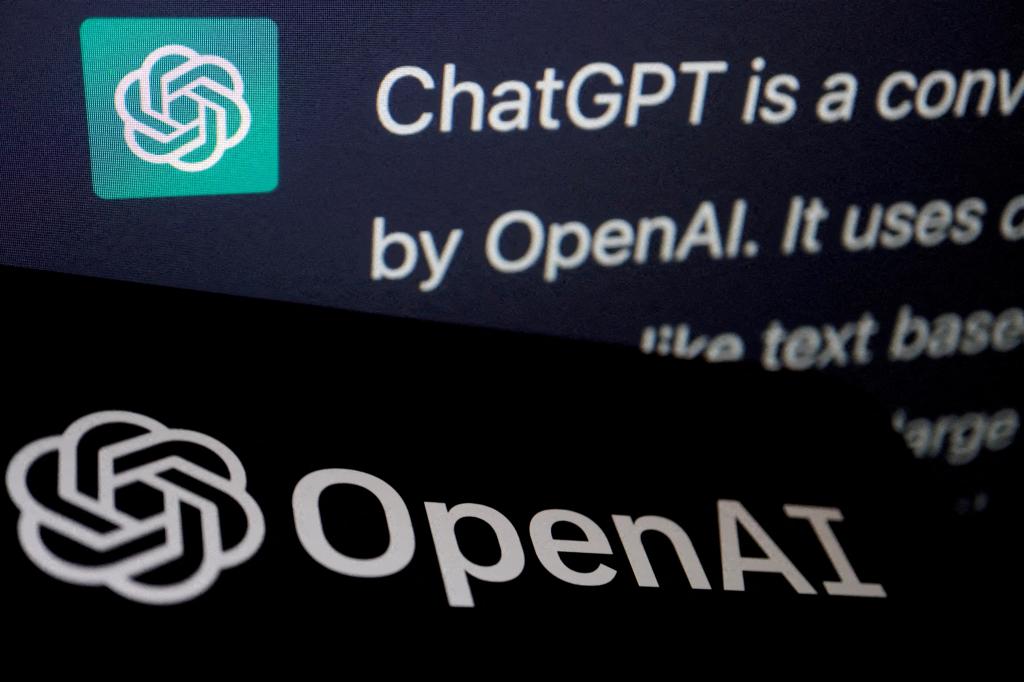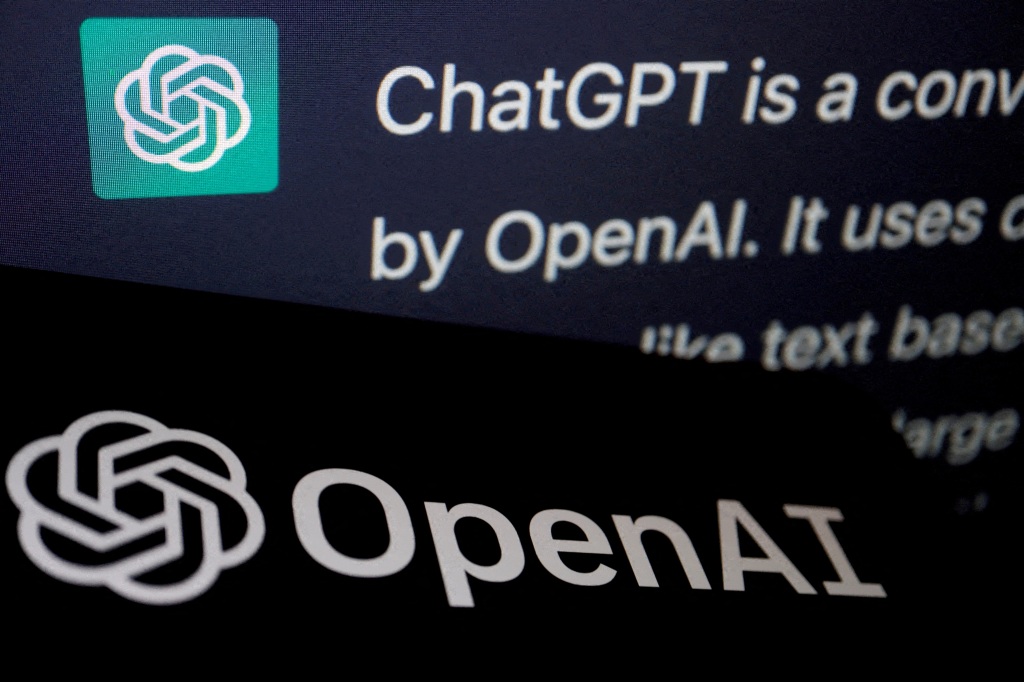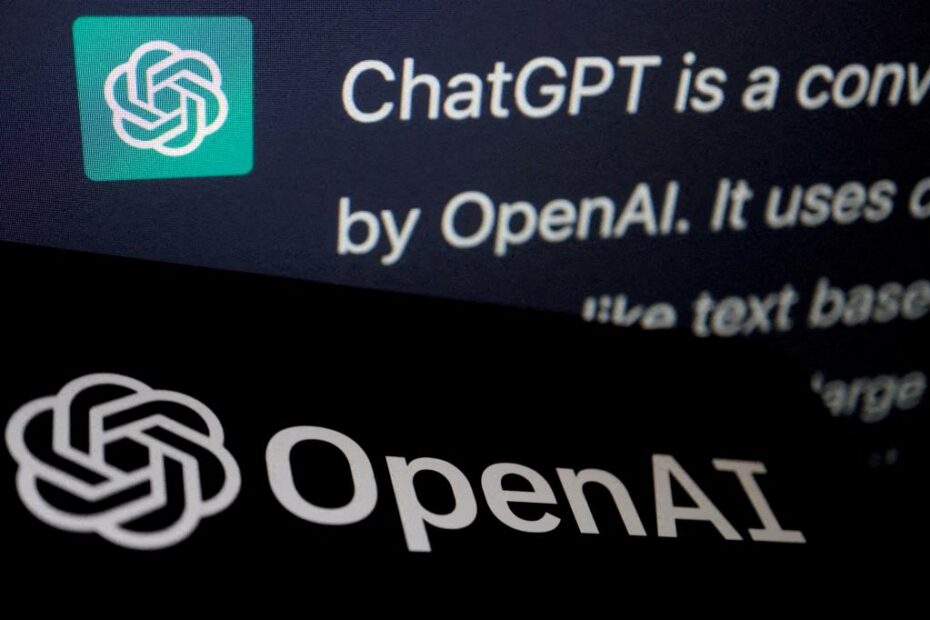Lawsuit says OpenAI violated US authors’ copyrights to train AI chatbot
Two U.S. authors have filed a proposed class-action lawsuit against OpenAI, a popular generative artificial intelligence system, ChatGPT, alleging that the company misused their works without permission. Massachusetts-based writers Paul Tremblay and Mona Awad claim that ChatGPT used data from thousands of books without authorization, infringing their copyrights. The authors’ lawyer, Matthew Butterick, has refused to comment on the lawsuit, while OpenAI, a private company supported by Microsoft Corp (MSFT.O), has not yet responded to the allegations. This legal challenge is part of a series of similar cases involving the use of copyrighted material to train cutting-edge AI systems. Defendants in these cases, including OpenAI and Microsoft’s GitHub, as well as Stability AI, Midjourney, and DeviantArt, have argued that their systems utilize the copyrighted material under the fair use doctrine.
ChatGPT has gained immense popularity as a consumer application and has reached 100 million active users in just two months since its launch this year. The system responds to users’ text prompts in a conversational manner. However, Tremblay and Awad’s lawsuit accuses ChatGPT of mining data from their books and other texts without permission. The complaint states that books are a crucial source of high-quality writing, making them a “key ingredient” for generative AI systems like ChatGPT. The lawsuit estimates that OpenAI’s training data incorporates over 300,000 books, including those sourced from illegal “shadow libraries” that distribute copyrighted material without authorization.
Mona Awad, known for her novels “13 Ways of Looking at a Fat Girl” and “Bunny,” and Paul Tremblay, author of “The Cabin at the End of the World,” which was adapted into the film “Knock at the Cabin,” claim that ChatGPT can generate accurate summaries of their books, suggesting that their works have been used without permission. The lawsuit seeks unspecified damages on behalf of a nationwide class of copyright owners who believe OpenAI has misused their works.
FAQs:
1. What is ChatGPT?
ChatGPT is a generative artificial intelligence system developed by OpenAI. It responds to users’ text prompts in a conversational manner and has gained immense popularity as a consumer application.
2. What are the allegations against OpenAI?
Two U.S. authors, Paul Tremblay and Mona Awad, have sued OpenAI, claiming that the company used their works without authorization to train ChatGPT. They allege that the system mined data from thousands of books, infringing their copyrights.
3. How has OpenAI responded to the lawsuit?
OpenAI has not yet responded to the allegations made in the lawsuit filed by Tremblay and Awad. The company has remained silent on the matter.
4. What is the basis of the lawsuit?
The authors’ lawsuit argues that ChatGPT and other generative AI systems heavily rely on copyrighted material, such as books, for their training data. They claim that OpenAI used their works without permission, indicating that books are a crucial ingredient for high-quality writing in these AI systems.
5. Are there other similar cases?
Yes, there have been several legal challenges regarding the use of copyrighted material to train AI systems. Plaintiffs have filed lawsuits against companies like OpenAI, Microsoft’s GitHub, Stability AI, Midjourney, and DeviantArt. The defendants in these cases have asserted that their use of copyrighted material falls under the fair use doctrine.

Lawsuit Alleges OpenAI’s Infringement of US Authors’ Copyrights in Training AI Chatbot
In a proposed class action lawsuit filed in San Francisco federal court, two U.S. authors have sued OpenAI, alleging that the company unlawfully used their works to train its popular artificial intelligence system, ChatGPT. Massachusetts-based writers Paul Tremblay and Mona Awad claim that ChatGPT utilized data copied from thousands of books without obtaining permission, thus infringing on their copyrights. Representatives for OpenAI, a private company financially backed by Microsoft Corp, have not yet responded to requests for comment.
This legal action is one of several disputes that have arisen regarding the use of copyrighted material in training advanced AI systems. Notably, OpenAI and Microsoft’s GitHub have faced legal challenges from owners of source code, while Stability AI, Midjourney, and DeviantArt have been sued by visual artists. The accused parties have all contended that their systems fall within the bounds of fair use.
ChatGPT is an AI system that engages in conversation-like interactions with users in response to text prompts. It gained immense popularity and became the fastest-growing consumer application in history, amassing 100 million active users within two months of its launch earlier this year.
 Tags:Allegesartificial intelligenceAuthorsChatbotchatgptCopyrightsInfringedLawsuitOpenAITechTraining
Tags:Allegesartificial intelligenceAuthorsChatbotchatgptCopyrightsInfringedLawsuitOpenAITechTraining 